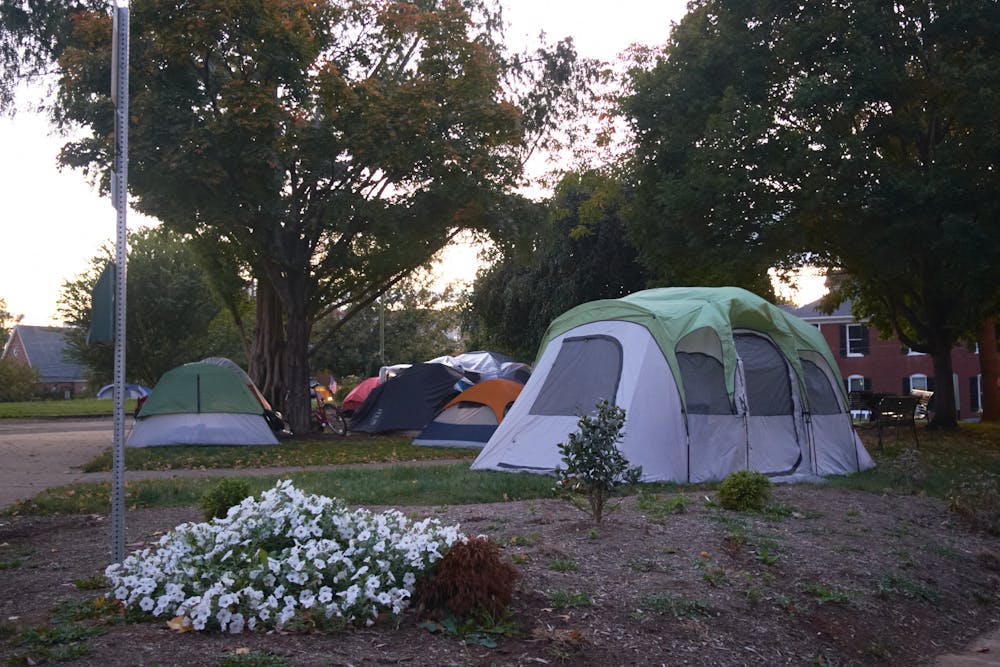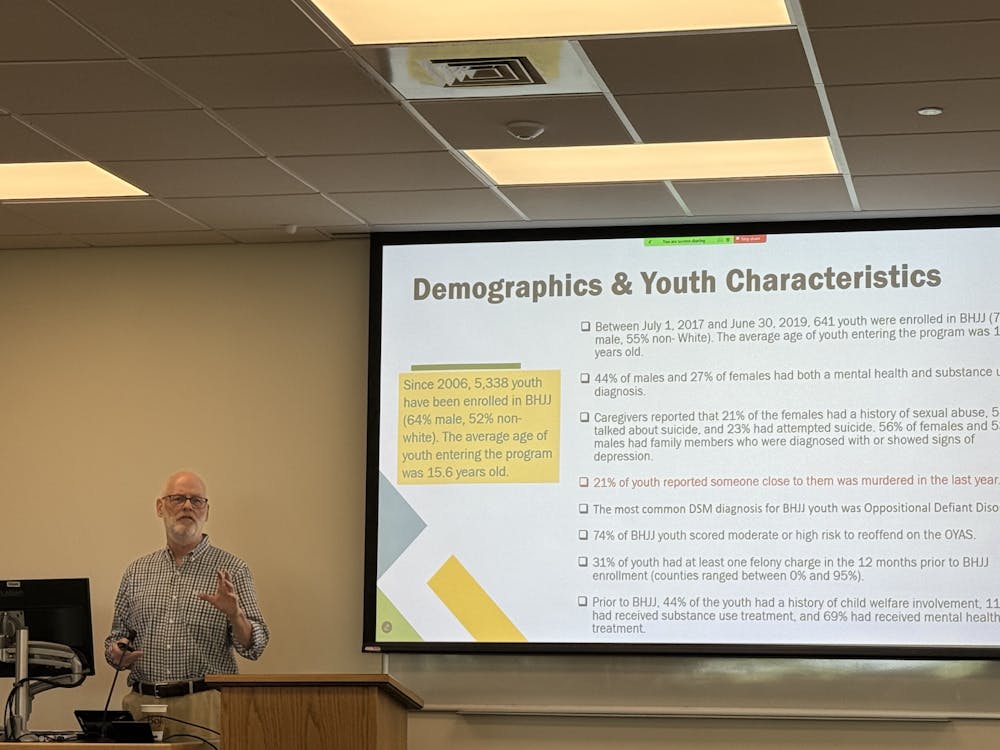A tent encampment of an estimated 30 tents and over 50 people has amassed in Market Street Park, located one block from Charlottesville’s Downtown Mall. The settlement formed following Charlottesville City Manager Sam Sanders’ decision to lift the park’s closing time, allowing residents to stay overnight. The curfew, however, will be reinstated Oct. 21 — just one month after it was lifted.
Prior to Sanders’ directive, Market Street Park was open from 6 a.m. to 11 p.m. The curfew was initially lifted following an alleged violent encounter between unhoused park residents and Charlottesville Police officers enforcing the park curfew — the City’s internal investigation later found that the claims were unfounded.
During a Charlottesville City Council meeting Oct. 2, Sanders said that the decision to lift the curfew was made in order to protect both Charlottesville Police and unhoused people. Despite criticism from some local residents, Sanders said he does not regret that decision.
“I don’t apologize for caring about people — I won't apologize,” Sanders said. “It is people and processes that I have repeatedly referenced as what matters to me most. The challenges facing the unhoused population is a total community issue.”
The only overnight shelter currently available in Charlottesville is run by the Salvation Army and only accommodates 50 beds. Additional shelters open during the winter months, but still only bring the number of beds in Charlottesville and the Albemarle area up to around 100. An estimated 260 Charlottesville residents are experiencing homelessness as of 2022.
The City has since said that its decision to reinstate the curfew was supported by the early reopening of a 50-bed overnight shelter through the People and Congregations Engaged in the Ministry group. While the shelter has historically opened Oct. 28 every year, its opening has been moved to Oct. 21 after conversations with the City. Charlottesville residents also expressed concerns about the lifting of the curfew, per Afton Schneider, director of communications and public engagement for the City of Charlottesville
“We have received emails thanking us for lifting the closing hours of the park, but we have also received emails expressing concern regarding the length of time of this arrangement, the safety and health of both the unhoused and other community members, and the long-term solutions,” Schneider said.
While Mark Kavit, president of the North Downtown Residents Association, said he has not personally had issues with the settlement’s residents, he has received complaints from other residents who fear the settlement will become disorderly. In particular, some residents have pointed to the alleged stabbing near Market Street Park Sept. 27.
“The neighbors felt uncomfortable using the park and feel its use has been taken from them,” Kavit said. “The people of NDRA are concerned for the homeless, but some are intimidated in using the park and [fear] the situation getting out of hand.”
The lifting of the curfew was originally part of a larger plan to address unhoused populations in Charlottesville. Sanders has divided the plan into short-term, mid-term and long-term initiatives.
The City is first seeking to identify the size and state of the unhoused population in order to pursue adequate housing accommodations. Longer-term goals include acquiring property for 24/7, 365-day homeless shelter services and creating more affordable housing and public resources.
Matthew Dunham, who has lived in Charlottesville for three months, said he currently sleeps on the porch of a building near Market Street Park. He said nearby churches should work together to assemble funding and support Charlottesville’s unhoused community.
“The homed need places to sleep, [and] the homeless need places to sleep,” Dunham said. “Why don’t we provide that to both?”
The park, other have argued, provides shelter and access to resources that are not being afforded elsewhere. In a statement at the Oct. 2 City Council meeting, fourth-year Architecture student Cady De La Cruz said the University has increased gentrification in Charlottesville by not providing more student housing. De La Cruz encouraged residents to first consider why the presence of unhoused people in the park makes them feel uncomfortable rather than immediately trying to remove them.
“Seeing our community members being forced to live on the street should make us uncomfortable, not because our unhoused neighbors are dangerous or because they pose us a threat,” De La Cruz said. “The violence we see in our community is because of the conditions that those in power have created.”
The controversy surrounding Market St. Park’s homeless encampment has spurred local activism, including the Housing Not Criminalization campaign, which has created graphics and an action toolkit with the aim of increasing advocacy against the reinstatement of the curfew. The group says the sudden curfew reversal will not provide enough time for Market Street’s inhabitants to relocate to PACEM housing.
“The presence of camping tents does not produce violence in the community, it simply makes the sins of society visible,” the statement reads.







